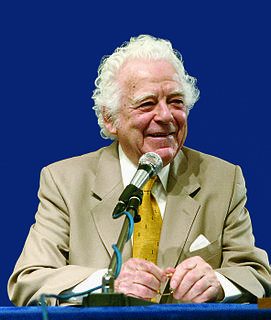A Quote by John Campbell Shairp
The belief in a Divine education, open to each man and to all men, takes up into itself all that is true in the end proposed by culture, supplements, and perfects it.
Related Quotes
During the last century, and part of the one before, it was widely held that there was an unreconcilable conflict between knowledge and belief. The opinion prevailed amoung advanced minds that it was time that belief should be replaced increasingly by knowledge; belief that did not itself rest on knowledge was superstition, and as such had to be opposed. According to this conception, the sole function of education was to open the way to thinking and knowing, and the school, as the outstanding organ for the people's education, must serve that end exclusively.
To oscillate between drill exercises that strive to attain efficiency in outward doing without the use of intelligence, and an accumulation of knowledge that is supposed to be an ultimate end in itself, means that education accepts the present social conditions as final, and thereby takes upon itself the responsibility for perpetuating them. A reorganization of education so that learning takes place in connection with the intelligent carrying forward of purposeful activities is a slow work. It can be accomplished only piecemeal, a step at a time.
If a society takes it upon itself to prescribe and proscribe certain streams of belief - to prohibit certain less-favored strains of conscience - it may be the non-believer who is among the first to be condemned. A coercive monopoly of belief threatens everyone, whether we are talking about those who search the philosophies of men or follow the words of God.
Man doth seek a triple perfection: first a sensual, consisting in those things which very life itself requireth either as necessary supplements, or as beauties and ornaments thereof; then an intellectual, consisting in those things which none underneath man is either capable of or acquainted with; lastly a spiritual and divine, consisting in those things whereunto we tend by supernatural means here, but cannot here attain unto them.



































